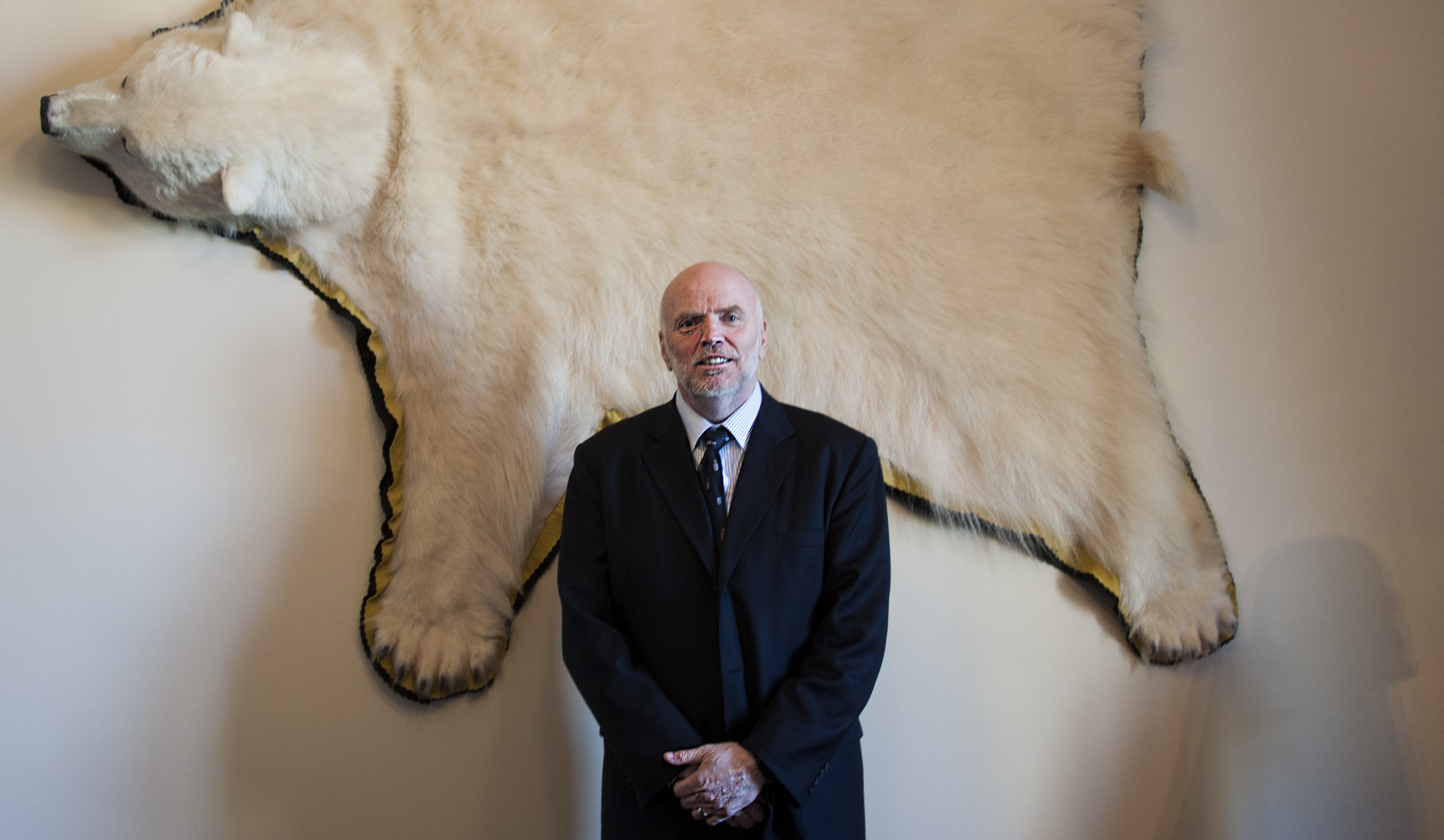'Mental illness is everywhere': Senator Vern White

Senator Vern White has been a cop for too long to see mental illness as an isolated problem.
After 24 years as an RCMP officer and seven years as Chief of the Ottawa Police Service, Senator White knows mental health is complicated, damaging and often comes hand in hand with other serious problems.
“I don’t think I realized how many people actually had mental health issues,” he said. “Quickly after you get into policing, you realize that mental illness is everywhere.”
Including in the back of a police cruiser.
Senator White saw firsthand the intersection of mental illness and the criminal justice system during his 19 years of policing Canada’s northern communities.
In the eastern arctic, for instance, a school teacher’s acts of abuse left dozens of children deeply mentally wounded.
“A decade later we saw those kids becoming offenders,” Senator White said.
It was this sort of experience that transformed him into a mental health advocate.
When he came to Ottawa in 2007 to become police chief, one of the first problems he noticed was the lack of a residential drug treatment program for youth.

A long line of 400 kids languished on a months-long waiting list — they needed help in their battle against addiction and they risked a lifetime in the justice system if they couldn’t get it.
“So I said that I was going to try to change the channel a little bit,” Senator White recalled.
Allying himself with Ottawa—Vanier MP Mauril Bélanger, philanthropist Dave Smith and other community leaders, he set about raising funds for a pair of drug treatment centres, one for Anglophones and one for Francophones.
Donors gave over $6 million, which also helped fund the placement of drug treatment counsellors in Ottawa schools.
“In fact, we’re the only city in Canada that has two drug treatment centres and drug treatment counsellors in every high school,” Senator White indicated.
Mental illness also consumes a disproportionate quantity of police resources — the Senator noted some police services say as much as 20 per cent of their calls for service are mental health calls.
Police officers responding to these calls may not have the skills and training to talk the person down, “but the only resource you have on scene is him or her,” Senator White said.
“If you could give them one more tool then I do think it means having a professional (mental health worker) beside them.”
As a Senator, he is using his position to effect change on a national scale.
“The things that were on the very tips of the corners of my desk before are now closer to the centre of my desk,” Senator White explained.
“Now I certainly have a lot more time … to make sure that we are continuing on this journey of having one of the greatest support systems in the country.”
Related articles
Tags
Committee news
'Mental illness is everywhere': Senator Vern White

Senator Vern White has been a cop for too long to see mental illness as an isolated problem.
After 24 years as an RCMP officer and seven years as Chief of the Ottawa Police Service, Senator White knows mental health is complicated, damaging and often comes hand in hand with other serious problems.
“I don’t think I realized how many people actually had mental health issues,” he said. “Quickly after you get into policing, you realize that mental illness is everywhere.”
Including in the back of a police cruiser.
Senator White saw firsthand the intersection of mental illness and the criminal justice system during his 19 years of policing Canada’s northern communities.
In the eastern arctic, for instance, a school teacher’s acts of abuse left dozens of children deeply mentally wounded.
“A decade later we saw those kids becoming offenders,” Senator White said.
It was this sort of experience that transformed him into a mental health advocate.
When he came to Ottawa in 2007 to become police chief, one of the first problems he noticed was the lack of a residential drug treatment program for youth.

A long line of 400 kids languished on a months-long waiting list — they needed help in their battle against addiction and they risked a lifetime in the justice system if they couldn’t get it.
“So I said that I was going to try to change the channel a little bit,” Senator White recalled.
Allying himself with Ottawa—Vanier MP Mauril Bélanger, philanthropist Dave Smith and other community leaders, he set about raising funds for a pair of drug treatment centres, one for Anglophones and one for Francophones.
Donors gave over $6 million, which also helped fund the placement of drug treatment counsellors in Ottawa schools.
“In fact, we’re the only city in Canada that has two drug treatment centres and drug treatment counsellors in every high school,” Senator White indicated.
Mental illness also consumes a disproportionate quantity of police resources — the Senator noted some police services say as much as 20 per cent of their calls for service are mental health calls.
Police officers responding to these calls may not have the skills and training to talk the person down, “but the only resource you have on scene is him or her,” Senator White said.
“If you could give them one more tool then I do think it means having a professional (mental health worker) beside them.”
As a Senator, he is using his position to effect change on a national scale.
“The things that were on the very tips of the corners of my desk before are now closer to the centre of my desk,” Senator White explained.
“Now I certainly have a lot more time … to make sure that we are continuing on this journey of having one of the greatest support systems in the country.”


